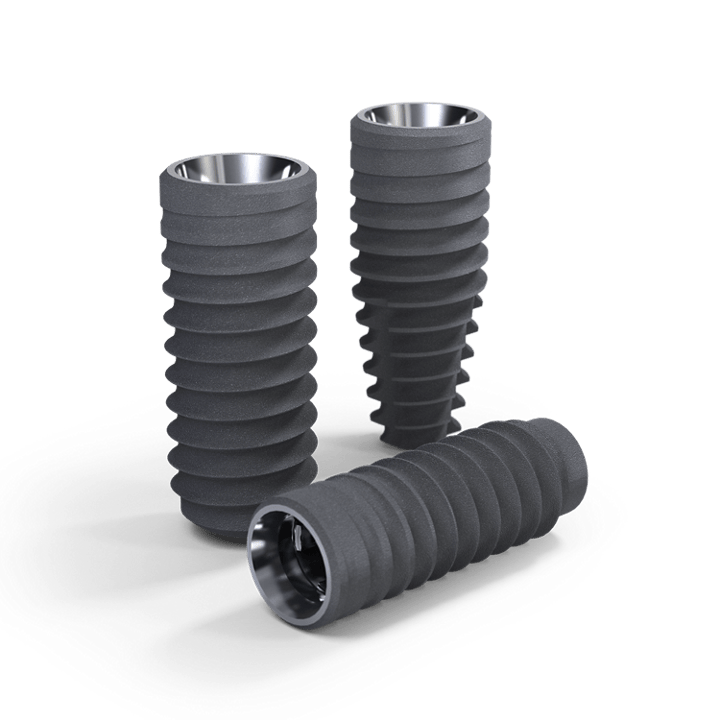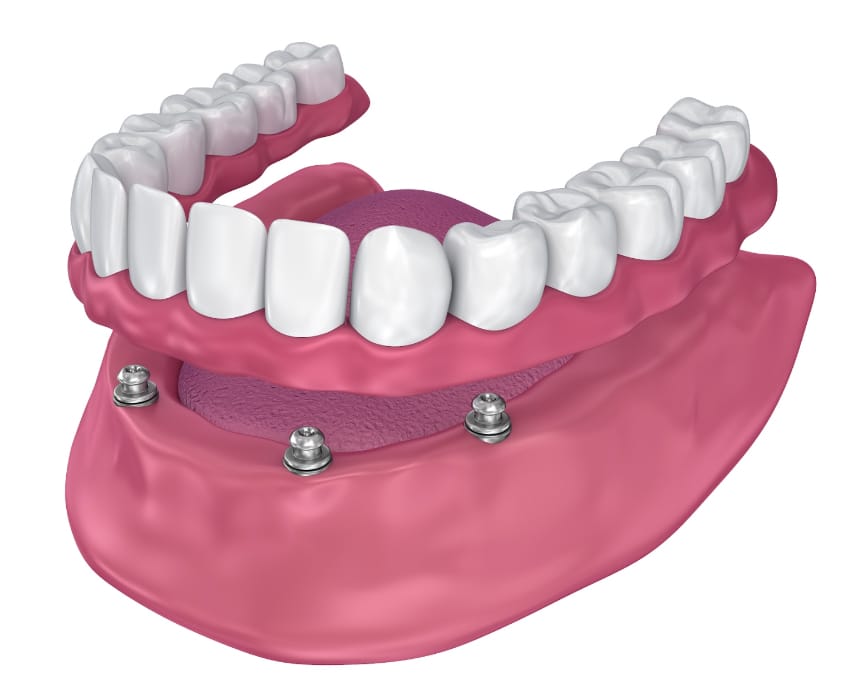Why We Choose Straumann® and Southern® Implants
Not all implants are created equal. We exclusively use the Straumann® and Southern® Implant Systems, the world’s most trusted names in implant technology.
- Precision engineering for superior strength and stability
- Faster healing times thanks to advanced surface technology
- Unmatched success rates, backed by decades of clinical research
- A natural look and feel, seamlessly blending with your own teeth
When you choose Straumann® and Southern® Implants with us, you are investing in quality, reliability, and the long-term health of your smile.

Precision Through Digital Dentistry
We don’t leave your smile to chance. Our clinic is equipped with state-of-the-art technology to ensure every implant is planned and placed with absolute precision.
- Our Cone Beam CT scanner captures incredibly detailed 3D images of your teeth, bone, nerves, and sinuses, allowing us to fully assess your anatomy and plan your treatment safely and accurately.
- Your mouth is digitally scanned using our 3D Intraoral Scanner to create a precise, detailed model of your soft tissue and tooth profile.
Your soft tissue scans and bone structures are overlayed into one digital model and your implant placement is planned to ensure optimal results. Prior to surgery, a custom implant guide is created from these scans to ensure the placement is exactly as planned. This digital planning reduces risks, shortens surgery time, improves healing, and delivers results that look and feel natural. We don’t leave your smile to chance. Our clinic is equipped with state-of-the-art technology to ensure every
The highest clinical standards can only be achieved through total control of the entire process, from scanning to restoration of the implants.
Types of Dental Implants

Single Dental Implants
A singular dental implant to replace a single missing tooth. A titanium implant is inserted into the bone which acts as the support for a dental crown or denture. Titanium is used because of its excellent biocompatibility, strength and resistance to corrosion. It integrates with the bone (osseointegration) to create a long term, stable structure.

Multiple Dental Implants
Similar to a single dental implant, multiple implants can be placed at the same time to replace multiple missing teeth. These missing teeth may be at different positions within the mouth.

Full Arch Implants
In cases where there is significant decay or the majority of teeth are missing, it may be impractical to place singular dental implants. Here a full set of prosthetic teeth are supported by multiple implants to regain normal function. The number of implants required to achieve satisfactory stability is assessed during the planning stage.
The Right Choice In Dental Care
We understand that choosing to have dental implants is a big decision. That’s why we’re committed to providing:
Pre-Surgery
- Expert advice and personalised plans tailored to your unique smile
- Digital planning to ensure the highest levels of precision
During Surgery
- Highly experienced clinical team
- The latest technology for precision, comfort, and outstanding results.
Post Surgery
- Exclusive use of the EMS Airflow system – The only recommended system to safely clean implant crowns
- A caring, supportive environment every step of the way
From your first consultation to your final smile, we are here to guide you with honesty, compassion, and world-class care.
Take Your First Step Toward A Healthier, Happier Smile
Ready to regain your confidence and enjoy all the benefits of dental implants? Book your consultation today and find out why so many patients trust Millennium Dental Mosman for their smiles.
Book your Implant Consultation today and make missing teeth a thing of the past.




